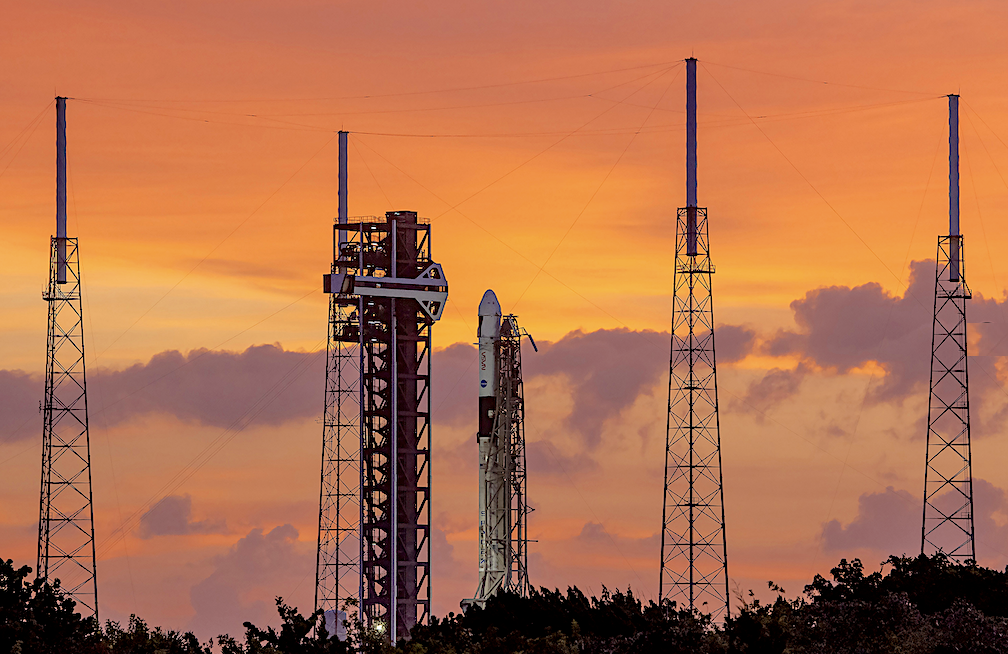
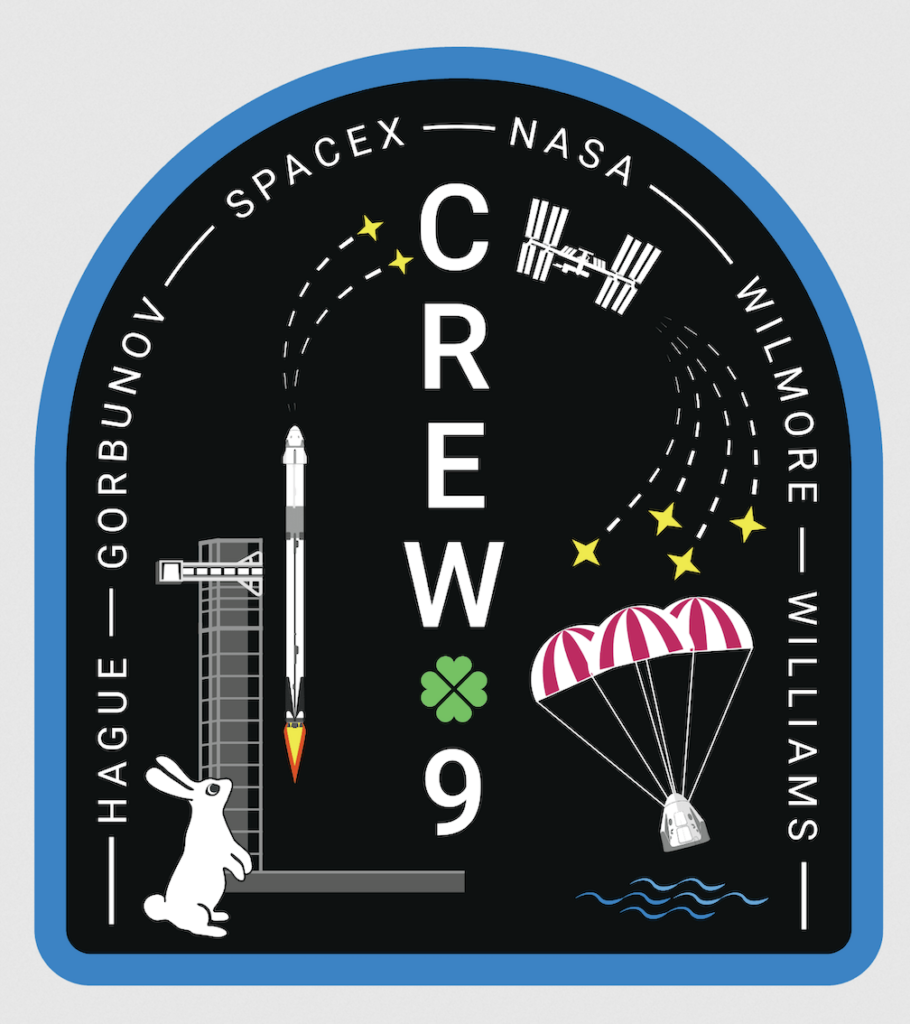
SpaceX and NASA are targeting no earlier than Saturday, September 28, at 1:17 p.m. EDT due to Tropical Storm Helene, for Falcon 9’s launch of Dragon’s ninth operational human spaceflight mission (Crew-9) to the International Space Station from Space Launch Complex 40 (SLC-40) at Cape Canaveral Space Force Station in Florida. The instantaneous launch is at 1:17 p.m. ET, with a backup opportunity available on Sunday, September 29 at 12:54 p.m. ET if needed.
Crew-9 will be the first human spaceflight to launch from Space Launch Complex-40 which was scheduled to fly in August, however the mission was pushed back for NASA and Boeing to analyze the Starliner situation so that there would be a place for Dragon to dock.
AccuWeather Saturday Forecast
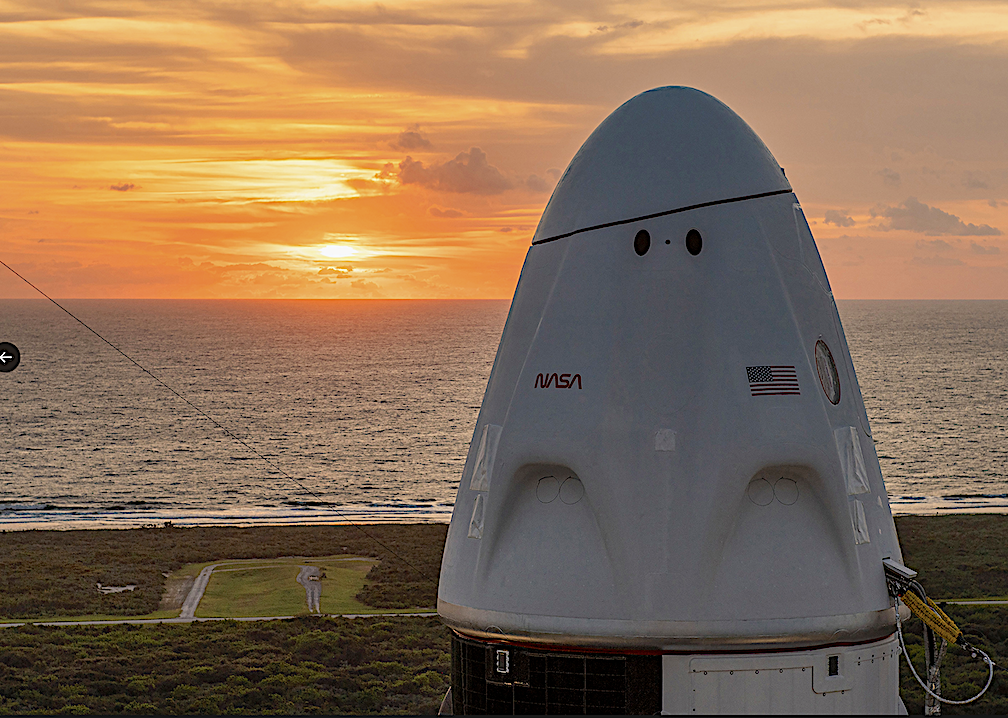
- 90°Hi
- RealFeel® 100°
- RealFeel Shade™ 98°
- Max UV Index 2 Lo
- Wind SSW 10 mph
- Wind Gusts 23 mph
- Probability of Precipitation 96%
- Probability of Thunderstorms 58%
- Precipitation 0.32 in
- Rain 0.32 in
- Hours of Precipitation 4
- Hours of Rain 4
- Cloud Cover 95%
At landfall Thursday evening – between 10 p.m. and 11 p.m. EDT – Helene will have maximum sustained winds of 130-135 mph, with much stronger gusts to at least 150 mph and an AccuWeather Local StormMax™ of 160 mph.
The StormMax gust is a Category 5 on the Saffir-Simpson Hurricane Wind Scale of at least 157 mph. At this intensity, many trees will be uprooted, roofs will be removed and some structures may totally fail.

The impacts of a hurricane go well beyond its potentially destructive winds. The AccuWeather RealImpact™ Scale for Hurricanes incorporates storm surge, flooding, rainfall, population density and economic impacts in addition to maximum winds. Due to complications from torrential rainfall, these impacts occur not only along the coast but hundreds of miles inland.
SpaceX preps for Saturday’s Crew-9 mission of two astronauts to conduct experiments and demonstrations on ISS
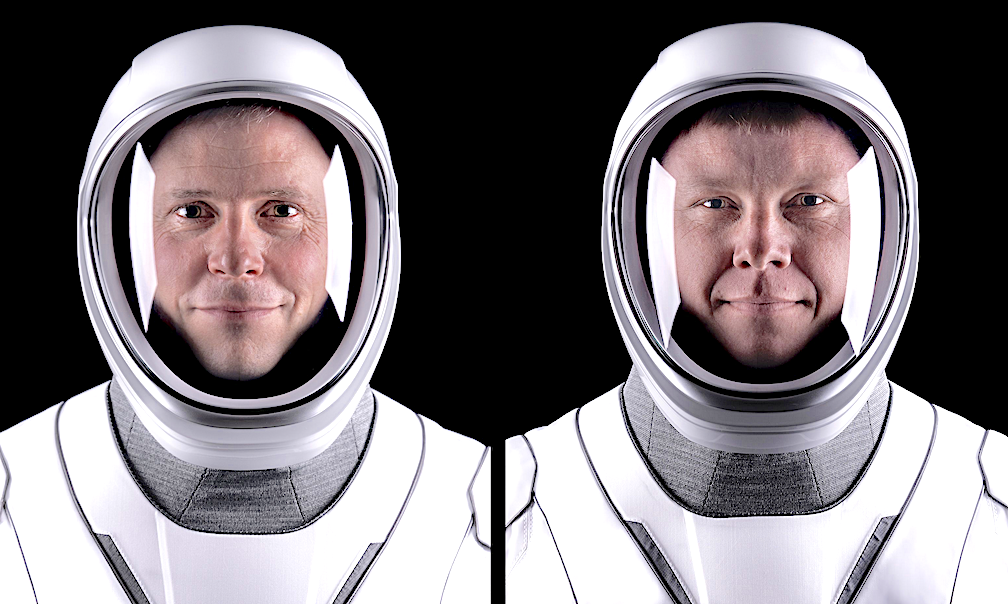

SpaceX and NASA are targeting no earlier than Saturday, September 28 due to Tropical Storm Helene, for Falcon 9’s launch of Dragon’s ninth operational human spaceflight mission (Crew-9) to the International Space Station from Space Launch Complex 40 (SLC-40) at Cape Canaveral Space Force Station in Florida. The instantaneous launch is at 1:17 p.m. ET, with a backup opportunity available on Sunday, September 29 at 12:54 p.m. ET if needed.
A live webcast of this mission will begin about one hour prior to liftoff, which you can watch here and on X @SpaceX. You can also watch the webcast on the new X TV app.
The Dragon spacecraft supporting this mission previously flew the Crew-4, Ax-2, and Ax-3 missions to and from the International Space Station. Following stage separation, Falcon 9’s first stage will land on Landing Zone 1 (LZ-1) at Cape Canaveral Space Force Station.
During their time on the orbiting laboratory, the crew will conduct over 200 scientific experiments and technology demonstrations to prepare for human exploration beyond low-Earth orbit and to benefit humanity on Earth.
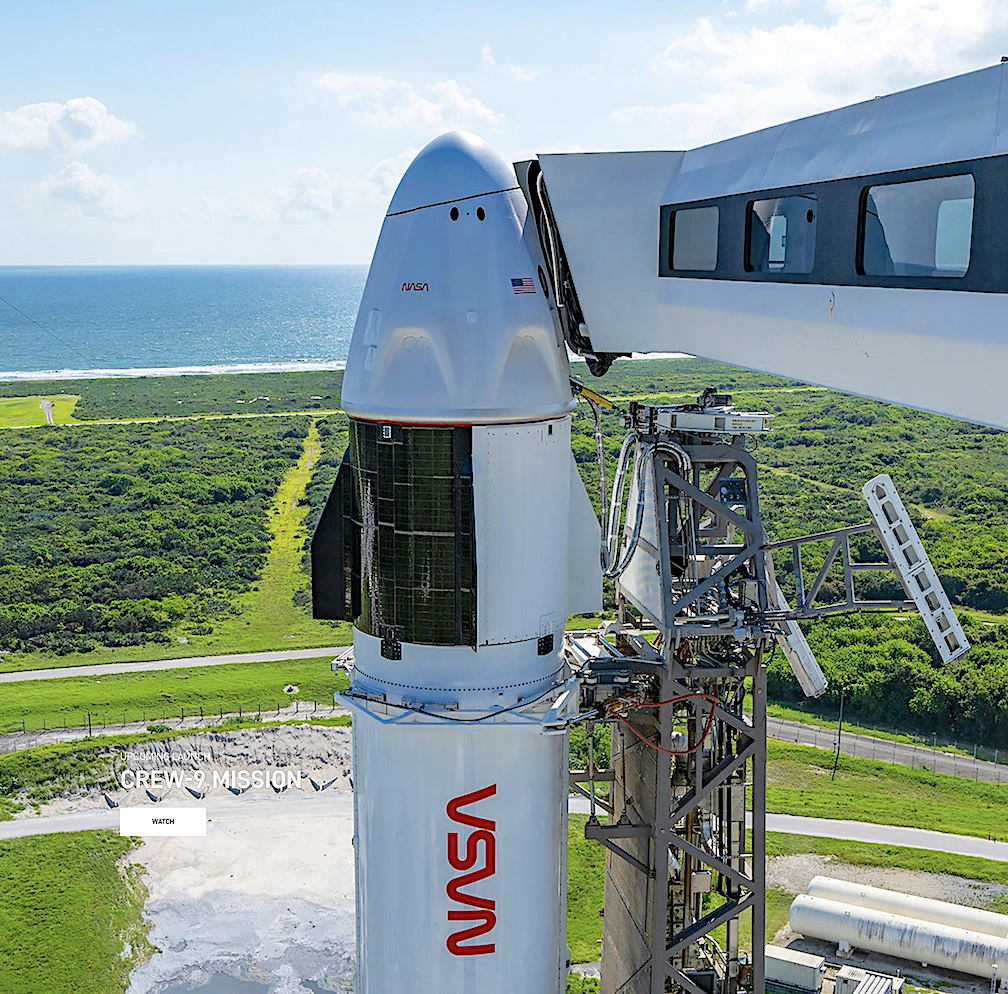
Col. Tyler N. Hague was selected by NASA as an astronaut in 2013. The Kansas native earned a Bachelor of Science in astronautical engineering from the United States Air Force Academy in 1998, and a Master of Science in aeronautical and astronautical engineering from the Massachusetts Institute of Technology in 2000.
Selected as an astronaut by NASA in 2013, Hague completed astronaut candidate training in July 2015. During his first mission to the International Space Station in 2018, he and his crewmate Alexey Ovchinin, of the Russian space agency Roscosmos, experienced a catastrophic rocket booster malfunction that resulted in the launch abort of their Soyuz MS-10.
In 2019, Hague launched on Soyuz MS-12 and served as Flight Engineer on the International Space Station for 203 days during Expedition 59 and 60. During 2020-2022, Hague completed a developmental rotation with the United States Space Force, serving as the new military service’s Director of Test and Evaluation at The Pentagon in Washington D.C.
He returned to NASA in August 2022 to work on the Boeing Starliner Program. Hague is currently training for his second spaceflight, where he will serve as commander for NASA’s SpaceX Crew-9 mission.
Aleksandr Vladimirovich Gorbunov served as a Lieutenant of the Air Force of the Aerospace Forces of the Russian Armed Forces and worked as an engineer for Energia, supporting cargo spacecraft launches.
He was selected to join the Roscosmos Cosmonaut Corps in 2018. He is scheduled to make his first flight to space on SpaceX Crew-9 in September 2024 and will serve as a flight engineer on the International Space Station during Expedition 72.ost
